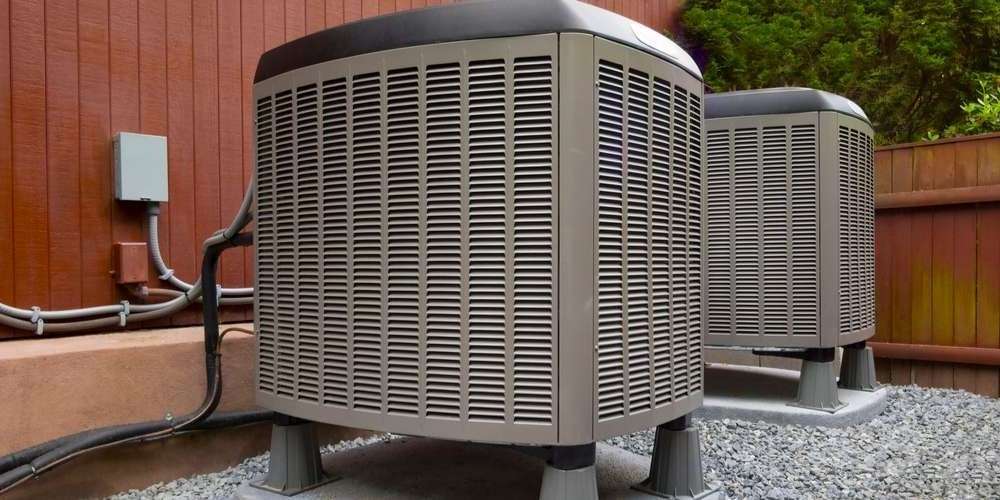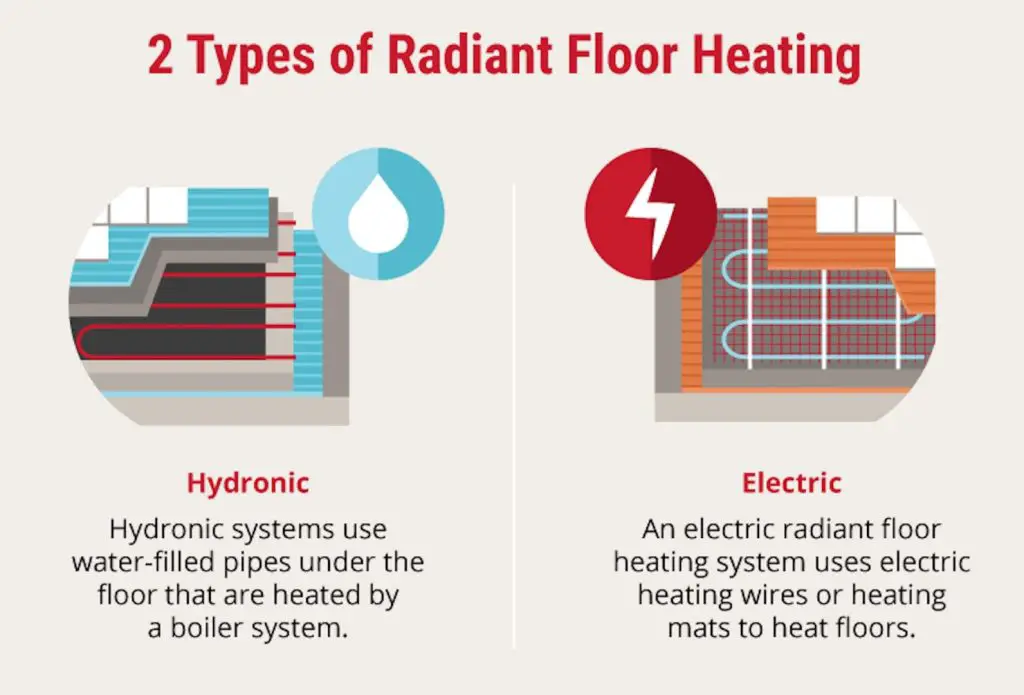A Hydronic HVAC system circulates water through pipes to heat or cool a building using radiant heat technology. This modern system is gaining popularity due to its efficiency and comfort benefits.
Hydronic systems can also provide efficient cooling, making them versatile for various climate needs. While the initial costs may be higher, the low running costs, energy efficiency, and long lifespan make hydronic systems a reliable investment. There are different types of hydronic distribution systems, including baseboard convectors, hot water air handlers, and radiant panel heating systems, which can be used individually or in combination to provide optimal heating and cooling solutions.
The use of water as the primary fluid in hydronic HVAC systems allows for efficient energy transfer throughout a building, making them a sustainable choice for modern HVAC needs.

Credit: www.ecohome.net
1. Introduction To Hydronic Hvac Systems
Hydronic HVAC systems are modern heating and cooling systems that use water to distribute temperature. Also known as radiant heat systems, they provide efficient and comfortable cooling, as well as heating. These systems circulate water through pipes to regulate a building’s temperature, offering a reliable and cost-effective solution.
What Is A Hydronic Hvac System?
Hydronic systems circulate water through pipes for heating or cooling, known as radiant heat.
Advantages Of Hydronic Hvac Systems
- Efficient heating and cooling
- Low running costs
- Durable and reliable investment

Credit: diyhomecomfort.com
2. Components Of A Hydronic Hvac System
2. Components of a Hydronic HVAC System
A Hydronic HVAC System consists of various essential components that work together to efficiently heat or cool a building. The key components include boilers, pumps, and heat exchangers.
Boilers
Boilers are a critical component of a Hydronic HVAC system, responsible for heating water to the desired temperature. They come in various types, including gas-fired, electric, or oil-fired boilers, providing the necessary heat for the system.
Pumps
Pumps play a vital role in a Hydronic HVAC system by circulating hot water from the boiler to the heating units and then returning the cooled water back for reheating. The pumps ensure efficient distribution of heat throughout the building.
Heat Exchangers
Heat exchangers are crucial for transferring heat between the hot water from the boiler and the air within the building. They facilitate the exchange of heat energy, ensuring optimal temperature control and comfort for the occupants.
3. Working Principle Of Hydronic Hvac Systems
Hydronic systems are heating systems that circulate water through pipes to either heat or cool a building. Another name for hydronic systems is radiant heat systems because they transmit temperature from inside the tubing to the surrounding environment through radiation.
Heating Process
Hydronic HVAC systems use hot water heated by a boiler and distribute it through tubing or piping to provide radiant heat. The heated water circulates through the system, transferring warmth to the floors, walls, and ceilings. This radiant heat warms objects in the room, creating a comfortable and consistent temperature.
Cooling Process
For cooling, a hydronic system can be equipped with a chiller to cool the water, which is then circulated through the tubing to absorb the heat from the surrounding areas. This process effectively reduces the temperature within the building, providing a comfortable indoor environment during hot weather.
4. Installation And Maintenance Of Hydronic Hvac Systems
Hydronic HVAC systems involve circulating water through pipes to heat or cool buildings. Also known as radiant heat systems, they efficiently provide both warmth and cooling, offering a comfortable and cost-effective solution for temperature control in any environment.
Installing a hydronic HVAC system requires careful planning and consideration. Here are some key factors to keep in mind:
- System Size: Before installation, it’s crucial to determine the appropriate size of the system for your space. Oversizing or undersizing can lead to inefficient operation and discomfort.
- Equipment Sizing: Properly size your equipment to ensure optimal performance. Consider factors such as heat load calculation, insulation, and building layout.
- Piping: Correct piping design is essential to ensure efficient water circulation. Plan the layout carefully, considering factors like pipe sizing, material, and location.
- Water Source: Determine the source of your hydronic system’s water supply. Whether it’s a dedicated boiler or a connection to an existing water heater, ensure the water source can meet the system’s demands.
- Control Systems: Choose a control system that suits your needs and allows you to effectively manage temperature, zoning, and energy consumption. Consider options like thermostats, timers, and programmable controllers.
Maintaining your hydronic HVAC system is crucial to ensure its longevity and efficiency. Here are some essential maintenance tips to follow:
- Regular Inspections: Schedule regular inspections to identify any potential issues before they escalate. Inspect the boiler, pipes, valves, and other components for leaks, corrosion, or signs of wear and tear.
- Fluid Quality: Check the quality of the fluid circulating in the system. Proper fluid composition, such as the right water-to-antifreeze ratio, is important for optimal performance and to prevent freezing or overheating.
- Pressure Maintenance: Monitor the system’s pressure regularly. Low pressure can indicate a leak, while high pressure may result in system malfunctions. Adjust the pressure as required, following manufacturer guidelines.
- Pipe Insulation: Ensure proper insulation of the pipes to prevent heat loss and improve overall system efficiency. Insulating exposed pipes can also prevent condensation and potential moisture damage.
- Component Cleaning: Clean or replace air filters regularly to maintain adequate airflow and prevent system strain. Additionally, clear any debris or obstructions from outdoor units for optimal performance.
By following these installation considerations and maintenance tips, you can ensure the proper functioning and longevity of your hydronic HVAC system. Regular maintenance not only improves its efficiency but also helps identify and address any issues before they lead to costly repairs.
5. Cost And Efficiency Of Hydronic Hvac Systems
In this section, we will discuss the cost and efficiency of hydronic HVAC systems. Understanding the initial costs versus running costs, as well as the energy efficiency and lifespan of these systems, is crucial in making an informed decision for your heating and cooling needs.
Initial Costs Vs. Running Costs
When it comes to hydronic HVAC systems, it’s important to consider both the initial costs and the running costs. While the initial costs of a hydronic system may be higher compared to other heating systems, it is important to note that the long-term benefits can outweigh this initial investment.
Hydronic systems are known for their energy efficiency and can help you save significantly on your energy bills in the long run. The system uses water to transfer heat, which is a more efficient method compared to forced air systems that rely on circulating heated air.
Besides energy efficiency, the lifespan of a hydronic system is also a factor that contributes to its overall cost-effectiveness. Hydronic systems are designed to last for several decades, requiring minimal maintenance and reducing the need for costly replacements or repairs.
Energy Efficiency And Lifespan
When it comes to energy efficiency, hydronic HVAC systems excel. These systems rely on water to distribute heat, which allows for a more efficient transfer compared to air-based systems. The water circulates through pipes, radiating heat to the surrounding environment through radiation.
This method ensures even distribution of warmth, eliminating cold spots and reducing energy wastage. Additionally, hydronic systems can easily be paired with energy-efficient components such as condensing boilers and pumps, further enhancing their efficiency and reducing energy consumption.
Another advantage of hydronic systems is their long lifespan. With proper maintenance, these systems can last for several decades, providing reliable heating and cooling for your home or commercial space. This longevity translates to cost savings in the long run, as you won’t have to worry about frequent repairs or replacements.
In conclusion, hydronic HVAC systems offer a cost-effective solution for your heating and cooling needs. Though the initial costs may be higher, the energy efficiency and lifespan of these systems make them a reliable and efficient investment in the long run. By considering the initial costs versus running costs, as well as the energy efficiency and lifespan, you can make an informed decision about incorporating hydronic HVAC systems into your space.

Credit: www.amazon.com
Frequently Asked Questions On Hydronic Hvac System
What Is A Hvac Hydronic System?
A HVAC hydronic system circulates water through pipes to heat or cool a building efficiently.
Can You Cool A House With A Hydronic Heating System?
Yes, a hydronic heating system can cool a house by circulating water through pipes for efficient cooling.
Is Hydronic Heating Expensive To Run?
Hydronic heating is initially more expensive than other heating systems, but it has low running costs, energy efficiency, and a long lifespan, making it a worthwhile investment.
What Are The Two Main Types Of Hydronic Heating Systems?
There are two main types of hydronic heating systems: baseboard convectors or radiators, and radiant panel heating systems. These systems circulate water through pipes to heat or cool a building. Hydronic systems are known for their efficiency and comfort.
Conclusion
A hydronic HVAC system offers efficient heating and cooling through water circulation, providing comfort and cost-effectiveness. With its radiant heat technology and versatility in both heating and cooling, it’s a smart investment for comfort and energy-saving. Consider a hydronic system for your HVAC needs.

